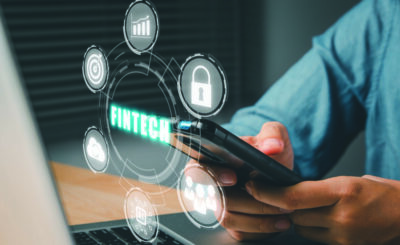Table of Contents
Check how much of your information is public
Check privacy settings
Avoid interacting with strangers
Be careful when you share information
Tagged Posts
Avoid sharing personal data online
Be extra careful
Be aware of phishing scams
Secure your passwords
In Summary
Social media apps are some of the most popular apps on our phones. Whether you used Facebook or have moved to Instagram or TikTok, these apps offer people a unique way to interact with each other. You can chat with your friends, get the latest news, or discuss your interests with any number of fans.
While social media can offer you fun ways to get in touch with the world, it is also very easy for people to hide their identities on these platforms. You may never know who is really behind the screens. Scammers are usually lurking behind these fake accounts and pounce on unsuspecting users. They can contact you through fakeyet authentic-looking celebrity profiles asking you to loan them some money. They contact you through fake businesses and try to get users to give away their personal information.
To ensure that users remain safe when they spend their hours scrolling through their favorite social media platform, we have listed some suggestions for you to follow.
Check How Much of Your Information Is Public
Turns out some of the information you post online may not be private. Some of it may be public information that can be accessed by others. You can find out exactly what is public by googling your name. The search should list any videos or images available to the public. From there, you can either take the necessary steps to have that content removed or just keep track of your public information.
Check Privacy Settings
All social media platforms are equipped with settings that can help you control the way you share your information with others. Some privacy settings can help you make your account private and prevent others from interacting with you. However, you can also keep your account public if you aren’t worried about others misusing your images and videos.
Avoid Interacting With Strangers
If you don’t want strangers interacting with your posts, never accept their friends or follow requests. When you allow people to view your profile, you give them the opportunity to see your posts. If you’d like to limit strangers, ignore their requests on your social media profiles.
Be Careful When You Share Information
Many users have a habit to share their locations online when visiting a new place. When you ‘check in’ to these locations, you are informing all your friends and followers of your whereabouts. If you have a public account, you may want to avoid sharing your location and only do so when you have left the place, just to be safe.
Tagged Posts
Some social media platforms allow you to view posts that you are tagged in. And if you are tagged, your friends and followers may also be able to view the tagged posts. You can have a look at the settings to restrict your profile from being tagged by others.
Avoid Sharing Personal Data Online
While many of us keep our personal information under wraps, we should be much more alert. Whenever you post on your birthday and display a cake with your age, you give away your date of birth to the people. While your friends may not misuse this information, such personal details are very useful to scammers looking for a way to steal your identity.
Be Extra Careful
If it’s something you don’t want your grandparents to see, don’t post it online. Even if your privacy settings are turned up to the max, you don’t have to share everything you do and think. Some things are better left un-posted.
Be Aware Of Phishing Scams
When you accept friend requests and follow requests from others, you allow them to view your personal information on those platforms. Your followers can access details like email address, home address, date of birth, and your contact number. The followers and pages you have given access to can send you random emails and even share your email and contact number with others.
In such cases, you may receive emails that may seem to be from authentic or legitimate sources, but are only trying to gain access to your personal information.
Secure Your Passwords
Most of us have a large number of passwords that we have to remember for the various accounts we have. And while that may be tough, you should create new passwords for each account and avoid reusing passwords. The best password should have at least twelve characters and include a combination of numbers, special characters, and uppercase and lowercase letters.
Try to keep your device locked with a password as well. If you misplace your device, your information will be safe from others. You can also opt for two-factor authentication, when available, to protect your information from unauthorized access.
In Summary
An internet connection offers you the ease to connect with friends and family, but you have to be wary of possible online threats. To continue browsing social media, you may want to consider AT&T internet or AT&T bundles. Find the perfect internet plan for your needs today.








